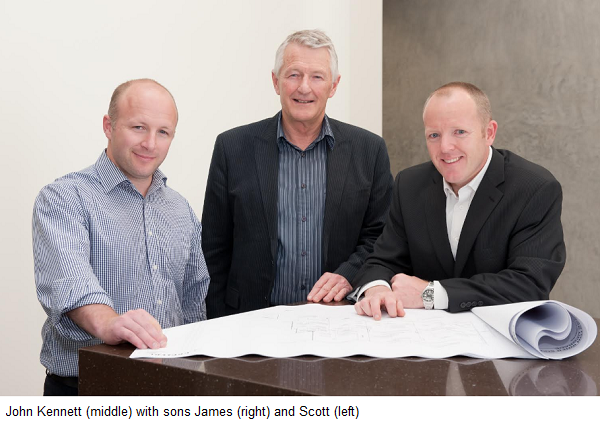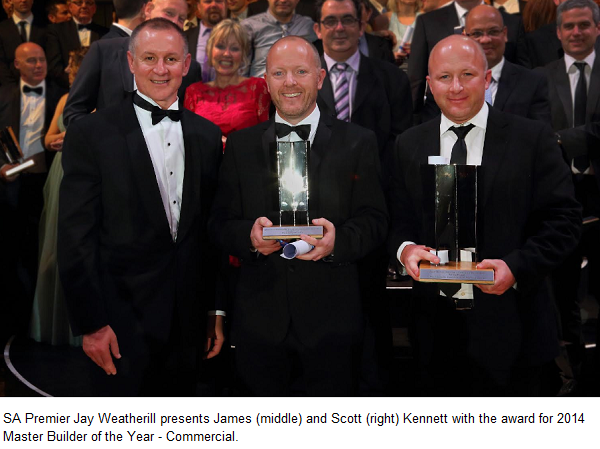How Kennett Builders became a powerhouse

This Saturday night 700 people will gather at the Adelaide Oval to celebrate the centenary of a builder. There probably won't be messages from the Queen and the PM, but there should be: 100-year-old building firms are few and far between.
It will also be a charity event for bowel cancer, because that's what John Kennett's mum, Jean, died of.
John, 67, is the third generation of his family to run Kennett Builders, but he virtually had to start again when he took over the business in the midst of the recession of 1991-2. He cut the staff in half and stopped building homes entirely, concentrating on commercial only.
He'd just bought out his cousin-in-law, Geoff Simpson, to move to 100 per cent ownership and his wife went back to work as a dressmaker to help pay the bills.
“It was pretty lonely then. I had no one to talk and really felt that solitude,” he says.
John Kennett left school at 17 and wanted to be a farmer. He got a job as a jackaroo and then worked on various farms around South Australia until his father died of heart disease at the age of 47.
And as often happens in family businesses, it was then -- with the death of his father -- that John felt the tug of history.
The business had been started in 1914 by Cliff and Charles Kennett. Their father Sam had been a bricklayer and they were brickies too, but they were ambitious. They formed a partnership as stonemasons and builders.
Charlie's sons, Neil and Dean, eventually came into the business and so did Cliff's son-in-law Hugh Simpson, who married his daughter Laurel. Cliff's other daughter, Betty, didn't marry.
The four second-generation Kennetts (and Simpson) owned 25 per cent each, but eventually the third generation, in the person of Neil's son John Kennett, mopped up the various family shareholdings so that by 1992, he owned 100 per cent.
The last bit of that was an amicable parting of the ways with Geoff Simpson, who owned 50 per cent. It involved a simple division of the business, which in those days also owned a hardware store on the road between Victor Harbor and Port Elliott, south of Adelaide. Geoff got the hardware and John got Kennett Builders, and because the recession had crushed the building industry but not regional retail, they were both worth about the same.
Not for long. John has built Kennett Builders into a $60 million South Australian powerhouse, responsible for many of the state's major buildings.
And now, at 67, it's time for John to organise his own succession. His sons, James, 44, and Scott, 40, are both in the business, as senior estimator and construction manager respectively.

Ownership has been put into trusts to be transferred easily to James and Scott when the time comes and, most important of all, John and his wife Gail are quickly building up their assets outside the business to ensure that their sons don't have to buy the business off them to fund their retirement.
This is often one of the most difficult issues in family business succession. The owners reinvest everything, so that when the time comes to retire and hand the business on to the next generation, the kids have to borrow and buy the business to fund their parents' retirement.
Luckily, Kennett Builders is throwing off enough cash for that not to be necessary, but it's not always so.
As part of his succession planning, John Kennett has set up an executive group that includes 36-year employee Stuart Allen as a kind of mentor for his sons.
He expects to work for anther three years, during which he'll gradually hand over management to his sons.
And which of them will be the boss? “That's up to them,” he says. Yeah, sure. I reckon dad might have some say in that.









